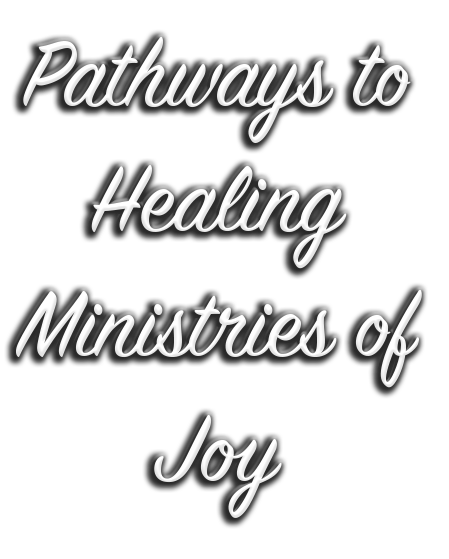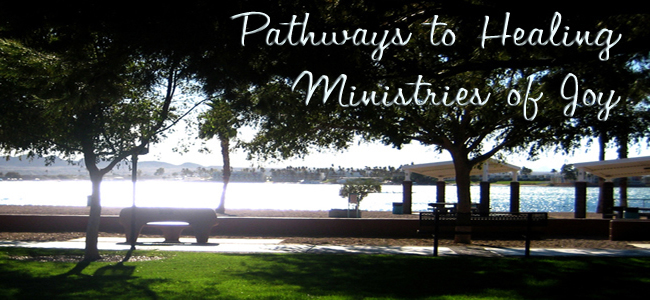I learned to “live ready” very early in life due to having a tendency to form blood clots in my legs and abdomen. From age 18, these would travel periodically into my heart and lungs, bringing me close to death.

There were also many hospital stays as my intestines seemed to have a grudge against me. Adhesions would form, ultimately sticking my intestines together. This caused numerous surgeries, which in turn caused more adhesions to form. I was in the worst of all emergencies at age 35, when blood clots had severely damaged my lungs, once again. However, a newly invented surgery “saved the day,” as regards having any blood clots enter my heart and lungs. I began to get better—and granted there was much prayer. Many people were pulling for me to be able to live and raise the three sons God had given me and the nuns of the hospital’s Pastoral Care Department were with me, “often.”
I did well after my vena cava vascular surgery. Amazingly well. Today, statistics show this very surgery has saved and continues to save many lives on a regular basis. With so much prayer (mine as well) the pattern of my body forming adhesions seem to come to a halt, for the most part.
Many years later, I look back with amazement having been given decades of life. My children are adults and I have grandchildren. My husband and I have celebrated many anniversaries—and once our “nest” was empty, I finished my education, having felt a call to prepare for ministering to sick and dying people. After gaining a Master’s Degree, I attended Clinical Pastoral Education in a teaching hospital, in order to gain Board certification as a chaplain. My life experience had prepared me for helping people who are facing grave uncertainties.
In my teens, twenties and thirties, I learned to “live ready.” Ready to die. It was often on my mind, yet I was not anxious. Somewhat afraid, yes, as it was “the unknown.” Most of us want certainty . . . which life does not afford us.
Looking back on our lives, Gary and I realize that because of my many hospital stays, both of our career paths changed to health care. He went back to Boise State University majoring in radiology, and recently retired as a MRI technologist.
My work, in part, these days includes having “Thoughtful Conversations” with individuals helping them understand the importance of making “end of life” choices. This includes creating a will, as well as to carefully document what care they do or do not want when death is pending. I help them understand what comprises end of life paperwork, based on what State laws are involved as regards creating a Living Will and Durable Power of Attorney for Health Care, which will designate who you want to speak for you, during an emergency at a time when you cannot speak for yourself. Many of us choose to put in place “Do Not Resuscitate (DNR)” and/or “Do Not Intubate (DNI)” orders. Unless such paperwork is in place, when hospitalized the medical team has no recourse other than to do everything possible to keep you alive. People can save themselves needless pain and perhaps suffering and their loved ones a lot of angst by doing this end of life paperwork while they can.
While I am with people who are in hospice or hospital settings, knowing they will die soon, I help them look at what else they want in life. Actor Gary Sinise wrote in his book, Grateful American: A Journey from Self to Service, a premise to which I adhere, “Each person on this planet is here for a purpose . . . That purpose is to care for other people and to help this world become a better place through service to others.”
In the past within my work as a hospice chaplain, most of the patients I saw were given very little time to finish their life’s journey. Part of that work included looking at their relationships, and when possible, making peace with those in which there was still pain. We worked on forgiveness and releasing the toxicity of resentment and bitterness, where this existed. In many cases, we prayed together, making the path to healing through forgiveness much easier.
Another way of getting ready came through thinking about “What one thing feels unfinished?” This took time for most people to reflect on and identify. In a number of instances the person lived long enough to complete that one thing. Otherwise, he or she dies within the joy of working toward something worthy of their time . . . the last of their time. And, they die in peace.
Another aspect of living ready comes while identifying what a person believes about, “What happens after death?” As a chaplain, I see clearly that most people need love and acceptance; advice is best used with great caution. Listening is a skill a chaplain must develop to truly be effective with patients. Sometimes people, when at death’s door, will ask questions like, ‘How can I be ready to die? Or, “I’ve not been religious. Help me know how to be ready to encounter God.”
My response is to “Just talk to God. Tell Him about your struggling with wondering: ‘is God real, or not?’ Tell God you want to see Him and talk with Him in person. Ask, ‘What do I need to do in order for that to happen?’ Then listen.”
I offer to help people say that prayer, if this assistance is wanted. On certain occasions, when the patient wants a more in depth interaction, I ask, “Would you like to hear my story of discovering the great love found through Jesus Christ, during my own personal quest?” If they say “yes,” the door is open to do so. Helping them see what the Bible says about being assured of living on into eternal life, can be an important step—based on when the patient is ready. Helping people stay in their comfort zone while their bodily needs are met is the major goal, particularly within the hospital and rehabilitation settings.
Life is a mystery. Not one of us knows how much time we will have on earth. My life experience revealed the fact that a huge advantage comes through “Living Ready” for death. If at all possible, ignoring the inevitable is not something to do right up to the end. We may not have consciousness at that point.
You may want to separate death from life, preferring not to think about it, but there is no doubt at all that death is part of each person’s life. And, it can actually be a blessed through becoming a time in which beauty of grace and grit can play the definitive roles.
If you would like to have a conversation about your own concerns, this can happen between us. Comment below, providing your thoughts, along with an email address. I will be happy to help you.



When we are small, we fall asleep in all kinds of places, the couch, the car, parents room, etcetera. Leaving this life can be like falling asleep on the sofa, and our father moves us safely to our appointed location. In the morning, as our first day in heaven will be, we wake up right where we belong.
Thank you, Rich, for your shared words. They will bless all who read them. Welcome to this comment opportunity for ministry. numerous ones are coming in from various countries. Maybe some readers will even take a look at my books. Ha! But all that’s really important is that people comes to know Jesus and what He has done for us . . . what He continues to do for us in His great and wondrous healing work. Then, one day we will be with Him throughout eternity! What great peace is ours as we bring all our worries and concerns to Him!